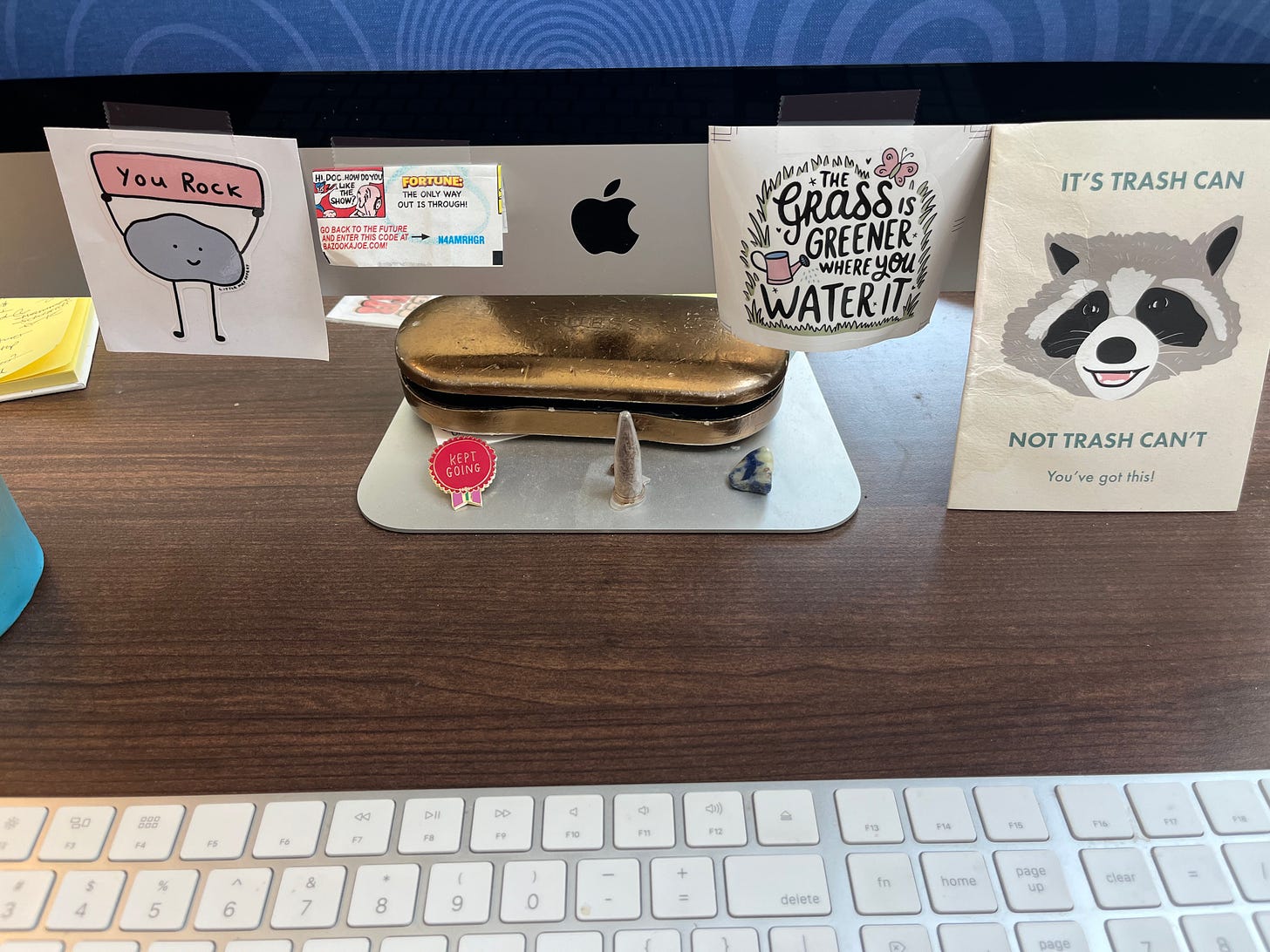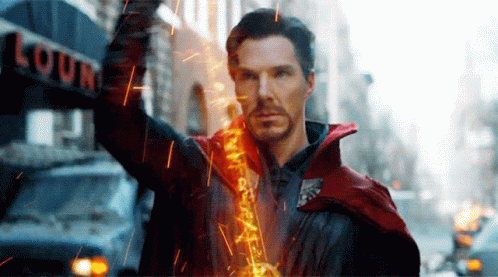And it's done
On finishing a book (or at least, a first draft)
Hello! It’s been a while. I would have written sooner except that I’ve been living at the bottom of a deep well, communicating with outsiders via sporadic, typo-riddled texts, and subsisting mainly on rice cakes covered in peanut butter. Well, at least, figuratively: I was finishing my book. (The rice cake diet was real, though. And I actually did not take a sabbatical from mothering—more on than below.)
I turned in my manuscript in early May—hurrah!—and already, my memory of the blurry final push is blurring further, the way that memories of childbirth and marathons start to disintegrate the moment the ordeal has ended. But I wanted to share the experience here because even though it was hard, it was one of the most exhilarating and rewarding things I have ever done. Perhaps it will resonate with some of you; perhaps it can be a source of hope for those still in the throes of writing a first draft.

Some quick backstory: I officially began working on the grass book a little more than two years ago. I was out on maternity leave for the first few months after signing my contract then eased into full-time book work in the spring of 2023. I was eager to get started, but the work proved slow and agonizing. Drafting an introduction for a grant application was like pulling teeth. Writing the next few chapters was even worse. Also, my family life was in chaos.
With only 8 months until my original deadline of November, 2024, I panicked and started working with my book coach, who helped me restructure my workflow. Things began to move faster. They began to get easier. Not easy, per se, but manageable and sometimes even enjoyable. Most importantly, I asked for an extension, and my editor graciously agreed. (In the spirit of transparency, I will disclose that I actually asked for three extensions: first 4 months, then 2 more, then one additional week at the very end.)
Over the following year, I kept putting words on the page, trying not to worry about how awful they seemed. And by some small miracle, I had an extremely rough but complete draft of the book by March of this year.
I remember expecting to feel victorious when I reached that milestone, which for so long, had felt stubbornly out of reach. But I did not. Instead, it felt like crawling across the finish line of a 100-mile race, dehydrated, disoriented, and caked in a residue of dirt and bodily fluids. I was so exhausted that I felt almost nothing.
Fortunately, I still had just shy of two months until my new deadline. So I printed out the book and read, for the first time, the entirety of the thing I had made. Shockingly, it wasn’t bad. There were parts of it that you could call decent. There were a few parts that, with some work, even had the potentially to be good. It was invigorating.
I began to revise by triage. The last two chapters of the book needed the most work, so I started there. And I soon realized the source of the problem: it wasn’t just that I had been run-down and overwhelmed with life stuff when I wrote them (though that was true). It was that I hadn’t yet landed on the book’s deepest purpose: I hadn’t compressed the carbon-rich humus of my research into the shimmering, dense diamond that I wanted to offer readers at the end of their journey.
For two weeks, I made little headway on the manuscript. Instead, I made lists. I scrawled conceptual diagrams on butcher paper taped to the walls of my office. I talked with writer friends, who generously listened to my half-baked thoughts. And when I was too embarrassed to share my half-baked thoughts with anyone at all, I walked around my neighborhood dictating voice memos and then listening back to them, having conversations with myself.

All of it helped. But surprisingly, the most useful thing I did was to go back through my research materials and revisit all of the subjects that had felt inexplicably important to me the first time around. These “sizzly bits,” as I came to think of them, had a unique quality to them: they thrilled my brain and sent jolts of adrenaline coursing through my body. Yet I could not say why they mattered. I could not see how they fit into the book I was making.
When I went back to them, however, I saw that the “sizzly bits” formed a trail of breadcrumbs leading me to the most fundamental point the book. And one day, while driving home from a gathering of writers, the pieces snapped into place. In a flash of recognition, I saw what my book was trying to do—and I could finally articulate it succinctly. (You’ll have to read the book to find out what it was! Mwahaha 😎)
This moment of revelation wasn’t just fortunate, it was spooky: apparently, my subconscious knew what the book was about long before my thinking brain did. How could this be? I still don’t know. But it does make me think of something George Saunders once wrote, that “the mind I walk around using every day is only a fraction of my real mind.” It was the rest of my mind—the submerged mass of the iceberg—that came to my rescue.
After I figure out what the book was about, revising the final chapters was mainly a technical matter of incorporating my newfound understanding into the existing text. It became obvious what needed to be added, and more importantly, what had to be cut. In one week, I had rewritten the penultimate chapter, and in another, the last.
By this point, I had become semi-nocturnal. I did not have the option to take a break from parenting. So during the day, I did what work I could between caring for my children, attending to basic needs like eating and showering, and if I was lucky, escaping for an occasional run or swim. Then, after the kids were in bed, I shuffled to my backyard office and worked until 2 or 3 in the morning, or whenever my brain gave out.
It was grueling, but strangely, I almost came to look forward to it. I was so enmeshed in the book, so immersed in its layers and textures, that being apart from it started to feel painful. I looked forward to rejoining it each evening. And I felt liberated by the spaciousness of the night; no one was going to interrupt me or ask something of me. There was only my own time to use, or waste, as I saw fit.
In mid-April, I returned to the beginning of the book and started working my way forward. I spent the better part of a week rewriting chapter 1, whose structure had eluded me during those first tooth-pulling days. And when that was done, I had roughly 10 days left to go through the rest of the book. That penciled out to 1 to 2 days per chapter. Yikes.
I truly went underground at this point—at least, mentally. The book became the real world. The real world became a niggling distraction. My main goal during daylight hours became not to forget my kids in the car or commit some other terrible act of negligence. I did not trust myself to go through the motions of life as I normally would.
But amazingly, whatever competence I lost in my day-to-day life I seemed gain 10-fold in my writing process. One day—or rather, one night—I completely restructured a 15,000-word chapter. The next day, I did it again. It was like I had acquired a superpower: I saw exactly where each sentence should go and moved sections around with unfamiliar confidence. Again, it struck me that my intuition had taken over; it perceived the hidden architecture of each chapter. And though it sounds cliché, I could feel the rightness of it in my bones.

I should acknowledge that this could all be a sophisticated self-preservation tactic in which I convince myself that my revisions were helpful because the alternative—that the manuscript is actually a mess—is too terrible to contemplate. Perhaps so. But that’s not how it felt in the moment. It felt like flow. Like performing at my absolute peak for one brief, magical spell of time.
For a few fleeting weeks, every neuron in my brain was awake and firing. Though I had given up on it, the sourdough starter had indeed been bubbling away the whole time I was researching the book, nourished by frequent feedings and tender care. Finally, it felt like all the work I had put into this project—into becoming a writer and a researcher and a thinker—was paying off.
Nearly a month out, the glow has already faded. I’m waiting for feedback from my editor and agent, from outside reviewers and fact-checkers. The world has gone back to normal. I am not a superhero of any sort. In fact, I know that when I open up the manuscript again, I will see only its flaws and shortcomings.
Still, I’m grateful for the intense and all-consuming experience of finishing the book. I’m grateful for the chance to glimpse what my full mind had been making—and to be momentarily filled up by it. I know people say work doesn’t love you back, but sometimes, maybe loving the work is enough.


Thank you for sharing this! My book is in edits now, and your search for "the shimmering, dense diamond... to offer readers" is inspiring and feels very timely for me.
This was thrilling to read! I could feel the late-night adrenaline. Very in awe of your superpowers!